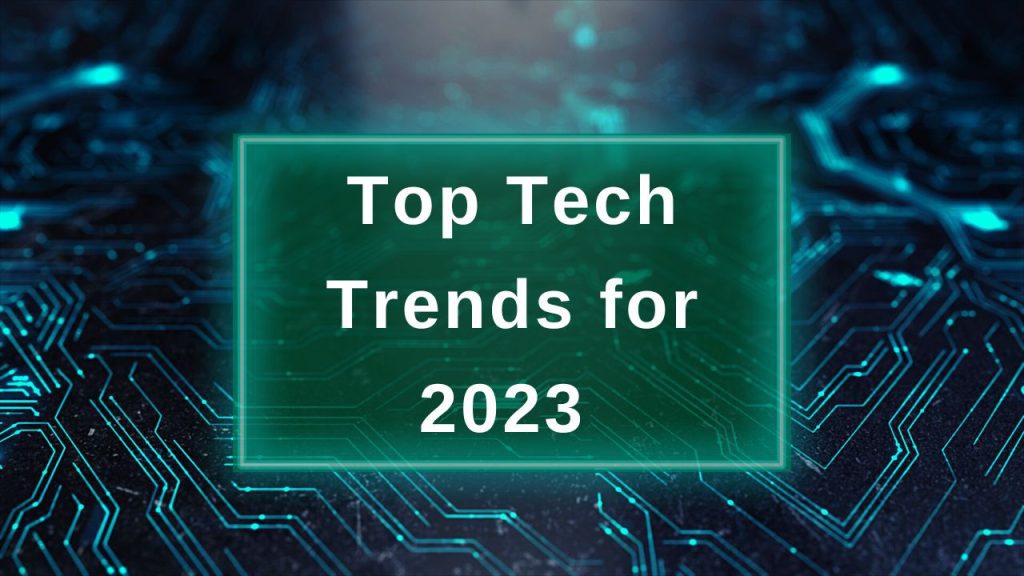A business operating in today’s volatile environment amid post-pandemic changes and an ever-looming threat to the economy must make smart, strategic choices to retain its competitive advantage.
While core business operations and activities play an important role, it is the strategic use of new technology trends that can give businesses the boost they need to sustain their growth.
Gartner’s top 10 technology trends for 2023 provide a robust framework for businesses to focus on in a business environment that changes with every passing second. In this article, we discuss these trends and why they work.
1. Digital Immune System
A digital immune system (DIS) helps businesses play an active role in mitigating risks they can fall victim to in the form of cyber-attacks, among other things. It comprises a number of technologies and best practices to protect your applications and systems from failure. In case a risk is encountered, the system allows your software and operations to bounce back quickly and safely. According to Gartner, in a world where the primary platform for conducting a few, if not all, your business activities is online, a DIS is essential for ensuring the resilience of your systems, the smooth functioning of your operations, and a top-notch user experience to deliver maximum business value.
For working with a DIS, you don’t need experts for one specific security task, but managers who are able to see and handle the 360 degree situation.
2. Applied Observability
An abundance of data was once thought to be the core requirement for enhanced decision-making and improved operational efficiency and productivity across business and IT functions. What Gartner suggests is actually needed is highly integrated, organised, and context-based observable data that allows organisations to enhance their understanding of customer behaviours, trends, grievances, and preferences. Learnings from this data through observable systems allows you to address these factors and mould your business practices to achieve better customer engagement, adoption, and experience.
Consultants who work with Decision Making Platforms (as e.g. Customer Data Platforms) must bring in a fundamental technical understanding, analytical smartness, plus a strong commercial thinking. No question recruiting these roles is one of the biggest challenges.
3. AI Trust, Risk and Security Management
AI Trust, risk, and security management (AI TRiSM) is a technology trend outlined by Gartner that makes the application of artificial intelligence to business processes more streamlined and reliable. One of the top benefits of AI TRiSM is that it provides businesses with AI model governance and explainability, often using third-party open-source software. Secondly, it ensures that robust security systems are in place that allows for protection against external threats. Privacy and the protection of data as relevant to AI models allow you to better benefit from everything AI has to offer.
The three first trends underline that Cybersecurity is one of the TOP trends in 2023. The three trends have in common that Cybersecurity is not a pure technical topic anymore. Cybersecurity is combined with adapting business processes, ensuring user experience and delivering business value. Hence the security consultant in 2023 needs a broad background and strong cooperation skills.
4. Industry Cloud Platforms
Any smart business in the 21st century uses cloud services to manage, store, and optimise data without the need for internal infrastructure and hardware. Industry cloud platforms take it one step further and integrate multiple cloud services into a single solution, allowing businesses to streamline and expedite operations and facilitate strategic decision-making. The platforms are fully customizable, ensuring you can get a solution custom-tailored to meet the specific needs of your organisation, something Gartner believes can give businesses the edge they need.
5. Platform Engineering
Any efficient team and its members need an easy-to-use platform that connects the back-end services an organisation has deployed to users of the service in a way that optimises digital delivery. Gartner believes that organisations focusing on platform engineering enable their employees to access IT tools, services, and capabilities through a platform that bridges the gap between their skill set and the complicated IT infrastructure they have to operate for delivering business value. Gartner also predicts that 80% of engineering firms will use platform engineering to boost application delivery and other processes by 2026.
Platforms will obviously play an even bigger role in 2023. Among other implications, this changes the way software is sold. The time of the “lonely wolfe” sales, whose success is mostly based on his personal network, is definitely over. Successful sales in 2023 have to be able to manage an often pure digital complex sales process with multiple stakeholders.
6. Wireless-Value Realization
Wireless technologies and capabilities greatly enhance the efficiency and productivity with which teams operate within an organisation. Gartner believes companies are beginning to realise the importance of bringing together multiple relevant wireless technologies into single solutions to revolutionise the way in which teams function across the board. This will allow teams to go beyond using wireless for communication alone and use it to promote further digital transformation through integration across wireless applications and devices.
With an even stronger infrastructure and more sophisticated cooperation, there’s no natural need for many of us to work from an office. Most likely, the questions about what the real benefits of working in an office are, but also how we can build a digital corporate soul, will keep us busy in 2023.
7. Superapps
The future belongs to customisation, whether it is in the personal or professional sphere. With superapps, Gartner predicts that organisations will look to provide end users, whether employees or customers, with a single platform that, in turn, provides them with access to multiple other miniapps. The end users are able to customise the superapps based on their needs, resulting in a personalised, integrated, and efficient interface providing an unmatched user experience that promises top results.
8. Adaptive AI
Adaptability is a vital characteristic in artificial intelligence models and applications, allowing for flexibility and ease of use. Automated adaptability takes it a step further by eliminating the need for manual modifications to AI models. According to Gartner, increased adaptive AI use in the future will allow AI models and systems to learn smartly from the changes happening in the environment around them. Following this, they can automatically initiate and implement changes to their code to better solve a problem in real-time.
Software whether for end-users or for corporates has to be light and easy to use. This requirement is still not met by a lot of the older software solutions. Accordingly they have to invest a lot in their product management. Otherwise, there’s a strong risk of being outperformed by smart SAAS native software providers.
9. Metaverse
The metaverse creates a new world in the online realm where people can connect, interact, and work towards meeting their goals. Gartner is of the opinion that organisations can benefit from an online workspace where employees can connect and collaborate on work tasks across functions. This allows brands to boost their revenue, build a loyal workforce that works together seamlessly, and grow their business exponentially.
In 2023, the metaverse will not be a typical environment for interviews, onboarding or team meetings. Nonetheless, smart companies will start to “play” with the possibilities of the metaverse.
10. Sustainable Technology
In a world where the environment and atmosphere are at risk from human activities, introducing sustainability into the mix ensures responsible business growth. Sustainable technology encourages the idea of producing and promoting technology solutions that minimise risk to the environment by using biodegradable materials and renewable resources, avoiding contamination, and ensuring efficient use of energy, among other things. Gartner believes that the organisations of the future will adopt environmental, social, and governance technologies to build a sustainable business that meets customer expectations.
Sustainability will definitely be one of the top topics in 2023 from many perspectives. Technology solutions which help to support sustainability (in so different areas as “smart logistics”, ESG management or e-mobility solutions) will probably profit from this trend. On the other hand, for more and more candidates, the sustainability profile of a potential new employer is a relevant point to check in the selection process. Accordingly, the sustainability profile (as Equality, Diversity and Inclusion) should be part of the employer branding.
The world of technology witnesses new innovations and improvements in the way processes are run every day. Businesses that make use of the latest technology offerings and trends keep up with the fast-changing world around them, ensuring growth, competitiveness, and sustainability.








